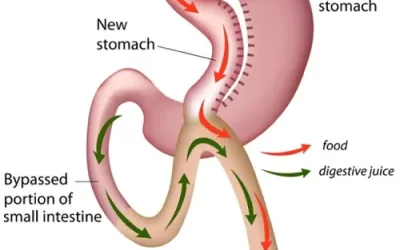Overweight and Obesity
Overview
Obesity is a medical condition that happens when a person carries excess weight or body fat that have serious health problems. A person has obesity if they have a high body mass index.
Body mass index (BMI) is a tool that doctors use to determinate if a person is at an appropriate weight for their age, sex, and height. The measurement is a Index between height and weight.
A BMI between 25 and 29.9 indicates that a person is carrying excess weight. A BMI of 30 says that the person has obesity. more than 40 is super-obesity (It may don’t apply for bodybuilders)
Other factors, such as the ratio of waist-to-hip size (WHR), waist-to-height ratio (WtHR), and the amount and distribution of fat on the body also play a role in determining how healthy a person’s weight and body shape are.
If a person does have obesity and excess weight, this can increase their risk of developing a number of health conditions, including metabolic syndrome, arthritis, and some types of cancer.
Metabolic syndrome involves a collection of issues, such as high blood pressure, type 2 diabetes, and cardiovascular disease.
Maintaining a healthy weight or losing through diet and exercise is one way to prevent or reduce obesity. In some cases, a person may need surgery.
Now read on to find out why obesity happens.
Consuming too many calories
Leading a sedentary lifestyle
Not sleeping enough
Endocrine disruptors
Obesity gene
Medications and weight gain
(someantipsychotics, especially olanzapine, quetiapine, and risperidone anticonvulsants and mood stabilizers, and specifically gabapentin hypoglycemic medications, such as tolbutamide glucocorticoids used to treat rheumatoid arthritis some antidepressants)
Is obesity self-perpetuating?
The longer a person is overweight, the harder it may be for the person to lose weight.
Some scientist studies suggested that the more fat a person carries, the less likely the body is to burn fat, because of a protein, or gene, known as sLR11.
It seems that the more fat a person has, the more sLR11 their body will produce. The protein blocks the body’s ability to burn fat, making it harder to shed the extra weight.
Take away
Many factors play a role in the development of obesity. Genetic traits can increase the risk in some people.
A healthful diet that contains plenty of fresh food, together with regular exercise, will reduce the risk of obesity in most people.
However, those that have a genetic predisposition may find it harder to maintain a healthy weight.
Currently bariatric surgery is the best tool you can acquire to achieve a healthy and aesthetic weigth
Blog
Bariatric Surgery Generalities
Morbid obesity is an epidemic in Mexico, the United States and many other countries of the world, unfortunately its incidence increases day by day, and thus also the associated coomorbilidades as Diabetes mellitus, hypertension, dyslipidemias, increased Ischemical Cardiopathy, osteoarthritis of the knee, and spine, depression, low self-esteem among many others.
Mini Gastric Bypass or one anastomosis Gastric Bypass (OAGB)
Mini gastric bypass is a surgery for morbidly obese but less invasive than a classic gastric bypass.
Weight loss surgery is not a brain surgery
Many of my patients’ questions are focused on the goal they will achieve with weight loss surgery (WLS), this is how much weight they will lose, and how fast, I respond them an estimate according to the world literature and the type of surgery to perform, generally what I tell them is enthusiastic and satisfied, because it is quite the expected loss, however none of my patients ask me how long that result will last, and this is as important in my opinion as the first question.



